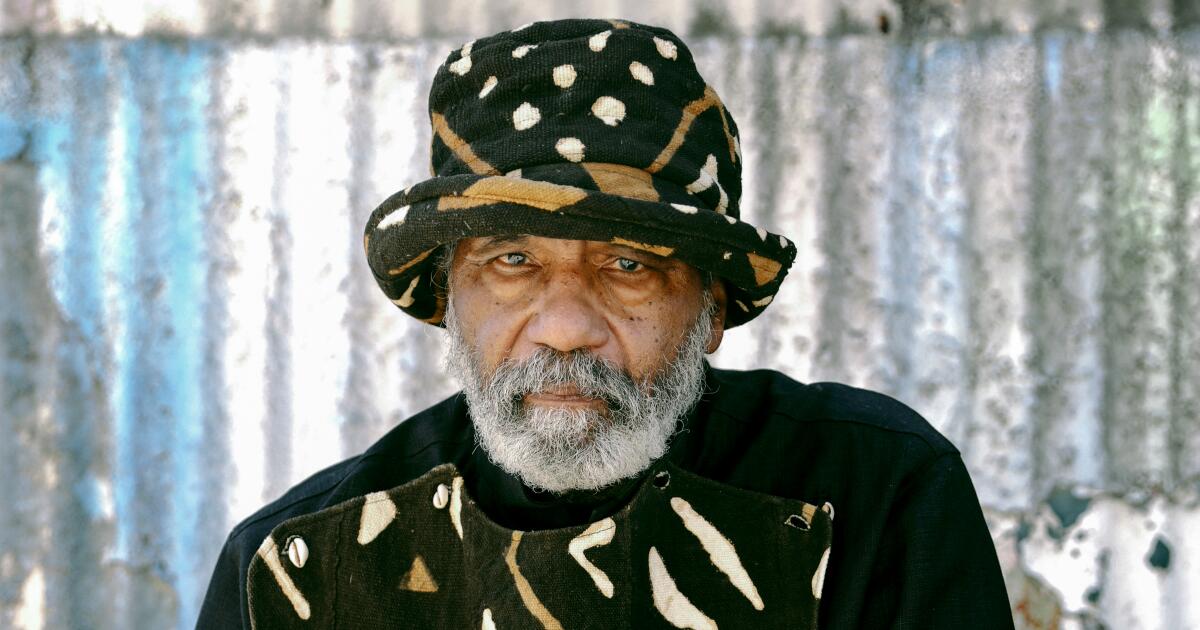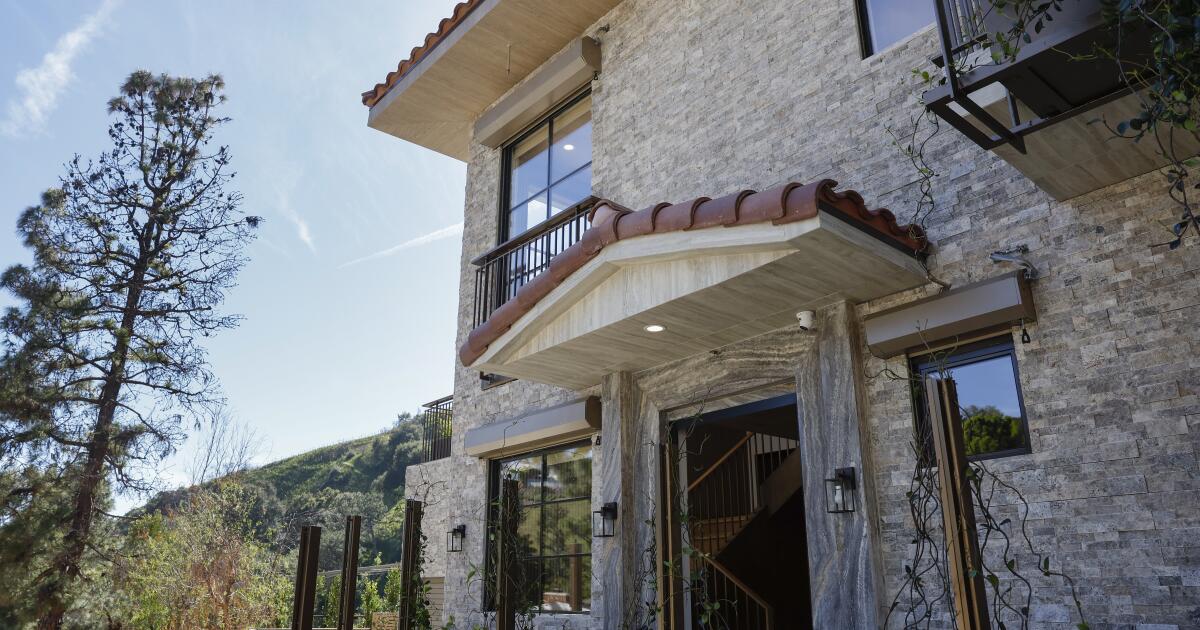Nevada
Nevada judge delays trial for suspect in Tupac’s murder to next year

A Nevada judge on Tuesday delayed the murder trial of the sole suspect ever charged in the 1996 killing of rap legend Tupac Shakur, postponing it for nearly a year.
Citing new developments from the defense and the need for a fair trial, the judge said she had little choice but to reschedule.
Why It Matters
Duane “Keffe D” Davis is the only suspect ever charged in the 1990s murder of rap legend Tupac Shakur in Las Vegas. A former gang leader, Davis is accused of orchestrating the shooting near the Las Vegas Strip that resulted in Shakur’s death shortly after a casino brawl involving Shakur and Davis’ nephew, Orlando “Baby Lane” Anderson. Davis was arrested in September 2023 in his neighborhood near Las Vegas.
In interviews and his 2019 memoir detailing Davis’ experiences as a leader of a Crips gang faction in Compton, he recounted acquiring a .40-caliber handgun and giving it to his nephew, who was seated in the back of a car. According to Davis and authorities, shots were fired from this car at Shakur, who was in another vehicle. Shakur succumbed to his injuries a week later at the age of 25.
Davis and his attorney had previously contended that he should not have been charged with murder due to immunity agreements he claimed to have made with federal and local authorities years ago. Their attempt to dismiss the case failed.
AP Photo/John Locher, Pool
What To Know
Originally set for next month in Las Vegas, the trial of Duane “Keffe D” Davis is now scheduled for February 9, 2026. The judge also ordered prosecutors and the defense to return for a status hearing over the summer.
“It looks like there are quite a few things that are left to be done to get this case prepared so that Mr. Davis can have effective assistance of counsel,” Clark County District Court Judge Carli Kierny said Tuesday.
When the judge asked if he was OK with the lengthy delay, Davis agreed.
The delay comes after Davis’ defense team filed a motion on Friday to request additional time for witness interviews and investigative work. The lawyers said a private investigator identified witnesses who could testify that Davis was not at the scene of the shooting.
The defense attorneys also suggested they have witness information to indicate that Shakur was in stable condition after the shooting but later died suddenly after being hospitalized for a week.
Since his September 2023 arrest, Davis has continued to request for bond—set at $750,000—and has faced repeated denials.
Davis’ attorney had also previously offered to provide additional financial records to prove that Davis and the music record executive aren’t planning to reap profits from the sale of Davis’ life story and that the money was legally obtained.
Attorney Carl Arnold has argued that Davis should’ve never been charged because of immunity agreements he reached with federal and local prosecutors years ago.
What People Are Saying
At the July hearing, Davis spoke and attacked prosecutors for “trashing” his family: “They not only ugly on the outside but they ugly on the inside too.”
What’s Next
The trial is now scheduled for February 9, 2026.
This is a developing news story and will be updated as more information is available.
Reporting by The Associated Press contributed to this story.
Update 02/18/25 1:50 p.m. ET: This article has been updated with additional information.

Nevada
2026 lunar eclipse visible in Nevada. How to watch
How to Watch Nevada’s 2026 Lunar Eclipse
A total lunar eclipse will cross Nevada skies early Tuesday morning. Here’s when totality begins and where to watch.
A lunar eclipse will be in Nevada skies late Monday night — or, more accurately, early Tuesday morning, March 3.
The downside is the hour: you’ll have to be up very late or very early, depending on your perspective.
Unlike a solar eclipse, which occurs when the moon passes between the Earth and the sun, a lunar eclipse happens when Earth casts its shadow on the moon, creating a rusty red hue.
If you’re looking to see the lunar eclipse, here’s everything you need to know about viewing it in Nevada.
What eclipse is in 2026?
If you live in the U.S., you will be able to see the lunar eclipse starting at 12:44 a.m. PST Tuesday, March 3, 2026, according to NASA. During the night, you’ll see the moon in a reddish hue, or a blood moon.
Totality lasts for a little more than an hour before the moon begins to emerge from behind Earth’s shadow, according to the popular site timeanddate.com. As the moon moves into Earth’s shadow, also known as the umbra, it appears red-orange or a “ghostly copper color,” hence its name: blood moon, NASA says.
“During a lunar eclipse, the moon appears red or orange because any sunlight that’s not blocked by our planet is filtered through a thick slice of Earth’s atmosphere on its way to the lunar surface,” NASA says. “It’s as if all the world’s sunrises and sunsets are projected onto the moon.”
Countdown clock to the 2026 total lunar eclipse
If you live in the U.S., you will be able to see the eclipse starting at 12:44 a.m. PST Tuesday, March 3, 2026.
The entire eclipse will last about six hours. People in Nevada can see the lunar eclipse during the early morning hours of Tuesday, March 3, 2026. The total lunar eclipse will be visible in North America, South America, Eastern Europe, Asia, Australia and Antarctica.
Everything will be over by 6:23 a.m. PST on March 3, 2026. Below is a countdown clock for the 2026 total lunar eclipse.
Where are the best places to see the lunar eclipse near Reno?
Though the Biggest Little City has an abundance of light pollution, darker skies are less than an hour from Reno.
- Fort Churchill State Park: The park provides a dark night sky ideal for evening astronomical events among the ruins of Fort Churchill. Park entrance costs $5 for Nevada residents and $10 for nonresidents.
- Pyramid Lake: A popular spot for Renoites seeking a night of stargazing, the lake is less than an hour from The Biggest Little City. It offers beautiful natural wonders and dark skies that give a clear view of the lunar eclipse.
- Lake Tahoe: Multiple locations around the lake are excellent for stargazing that are less than an hour from Reno.
- Cold Springs or Hidden Valley still get light pollution from the Biggest Little City, but have clearer skies than the middle of town.
- Driving down the road on USA Parkway will likely also give you the dark skies to see the lunar eclipse without having to make a significant drive outside of town.
Carly Sauvageau with the Reno Gazette Journal contributed to this report.
Nevada
How the strikes on Iran could impact gas prices in northern Nevada

The United States and Israel launched targeted attacks on Iran on Saturday. The move brought new uncertainty into global energy markets, as northern Nevadans could be paying more at the pump in the coming weeks.
Following the strikes, oil prices increased. Brent crude, the international benchmark, jumped to roughly $73 a barrel, while the national benchmark, West Texas Intermediate, traded above $67.
Much of the concern centers around the Strait of Hormuz, a narrow waterway between Iran and Oman. which carries about a fifth of the world’s oil supplies.
Patrick de Haan, head of petroleum analysis with GasBuddy, a price tracking company, spoke on the current questions in the region.
“The known would reduce oil prices if there becomes clarity, but it’s the unknown that is stoking fears…. If there is some sort of clarity in the days ahead, whether from Iran, the United States, or Israel, on how long this would last. We’d be able to put potentially an end date for the potential impacts that we’re seeing,” said de Haan.
Experts say for every $5 to $10 increase in oil prices, drivers could pay 15 to 25 cents more per gallon.
According to Triple-A, the average price of a gallon of gas in Nevada on Sunday comes in at $3.70, which comes in above the national average of roughly $2.98.
Over at the Rainbow Market on Vassar Street, prices sat just below four dollars a gallon on Sunday. Reno resident Abran Reyes talked about gas prices potentially going up.
“Whether it’s to work, to maybe run errands, to do stuff that helps you, gas is essential…. That gas price really hits, especially in today’s economy, where gas prices are extraordinary…. I just hope everyone’s safe. I hope our soldiers and all of our troops can be okay,” said Reyes.
Nevada
Nevada debuts public option amid federal health care shifts

More than 10,000 people have enrolled in Nevada’s new public option health plans, which debuted last fall with the expectation that they would bring lower prices to the health insurance market.
Those preliminary numbers from the open enrollment period that ended in January are less than a third of what state officials had projected. Nevada is the third state so far to launch a public option plan, along with Colorado and Washington state. The idea is to offer lower-cost plans to consumers to expand health care access.
But researchers said plans like these are unlikely to fill the gaps left by sweeping federal changes, including the expiration of enhanced subsidies for plans bought on Affordable Care Act marketplaces.
The public option gained attention in the late 2000s when Congress considered but ultimately rejected creating a health plan funded and run by the government that would compete with private carriers in the market. The programs in Washington state, Colorado, and Nevada don’t go that far — they aren’t government-run but are private-public partnerships that compete with private insurance.
In recent years, states have considered creating public option plans to make health coverage more affordable and to reduce the number of uninsured people. Washington was the first state to launch a program, in 2021, and Colorado followed in 2023.
Washington and Colorado’s programs have run into challenges, including a lack of participation from clinicians, hospitals, and other care providers, as well as insurers’ inability to meet rate reduction benchmarks or lower premiums compared with other plans offered on the market.
Nevada law requires that the carriers of the public option plans — Battle Born State Plans, named after a state motto — lower premium costs compared with a benchmark “silver” plan in the marketplace by 15% over the next four years.
But that amount might not make much difference to consumers with rising premium payments from the loss of the ACA’s enhanced tax credits, said Keith Mueller, director of the Rural Policy Research Institute.
“That’s not a lot of money,” Mueller said.
Three of the eight insurers on the state’s exchange, Nevada Health Link, offered the state plans during the open enrollment period.
Insurance companies plan to meet the lower premium cost requirement in Nevada by cutting broker fees and commissions, which prompted opposition from insurance brokers in the state. In response, Nevada marketplace officials told state lawmakers in January that they will give a flat-fee reimbursement to brokers.
The public option has faced opposition among state leaders. In 2024, a state judge dismissed a lawsuit, brought by a Nevada state senator and a group that advocates for lower taxes, that challenged the public option law as unconstitutional. They have appealed to the state Supreme Court.
Federal Policy Impacts
Recent federal changes create more obstacles.
Nevada is consistently among the states with the largest populations of people who do not have health insurance coverage. Last year, nearly 95,000 people in the state received the enhanced ACA tax credits, averaging $465 in savings per month, according to KFF, a health information nonprofit that includes KFF Health News.
But the enhanced tax credits expired at the end of the year, and it appears unlikely that lawmakers will bring them back. Nationwide ACA enrollment has decreased by more than 1 million people so far this year, down from record-high enrollment of 24 million last year.
About 4 million people are expected to lose health coverage from the expiration of the tax credits, according to the Congressional Budget Office. An additional 3 million are projected to lose coverage because of other policy changes affecting the marketplace.
Justin Giovannelli, an associate research professor at the Center on Health Insurance Reforms at Georgetown University, said the changes to the ACA in the Republicans’ One Big Beautiful Bill Act, which President Donald Trump signed into law last summer, will make it more difficult for people to keep their coverage. These changes include more frequent enrollment paperwork to verify income and other personal information, a shortened enrollment window, and an end to automatic reenrollment.
In Nevada, the changes would amount to an estimated 100,000 people losing coverage, according to KFF.
“All of that makes getting coverage on Nevada Health Link harder and more expensive than it would be otherwise,” Giovannelli said.
State officials projected ahead of open enrollment that about 35,000 people would purchase the public option plans. Of the 104,000 people who had purchased a plan on the state marketplace as of mid-January, 10,762 had enrolled in one of the public option plans, according to Nevada Health Link.
Katie Charleson, communications officer for the state health exchange, said the original enrollment estimate was based on market conditions before the recent increases in customers’ premium costs. She said that the public option plans gave people facing higher costs more choices.
“We expect enrollment in Battle Born State Plans to grow over time as awareness increases and as Nevadans continue seeking quality coverage options that help reduce costs,” Charleson said.
According to KFF, nationally the enhanced subsidies saved enrollees an average of $705 annually in 2024, and enrollees would save an estimated $1,016 in premium payments on average in 2026 if the subsidies were still in place. Without the subsidies, people enrolled in the ACA marketplace could be seeing their premium costs more than double.
Insights From Washington and Colorado
Washington and Colorado are not planning to alter their programs due to the expiration of the tax credits, according to government officials in those states.
Other states that had recently considered creating public options have backtracked. Minnesota officials put off approving a public option in 2024, citing funding concerns. Proposals to create public options in Maine and New Mexico also sputtered.
Washington initially saw meager enrollment in its Cascade Select public option plans; only 1% of state marketplace enrollees chose a public option plan in 2021. But that changed after lawmakers required hospitals to contract with at least one public option plan by 2023. Last year the state reported that 94,000 customers enrolled, accounting for 30% of all customers on the state marketplace. The public option plans were the lowest-premium silver plans in 31 of Washington’s 39 counties in 2024.
A 2025 study found that since Colorado implemented its public option, called the Colorado Option, coverage through the ACA marketplace has become more affordable for enrollees who received subsidies but more expensive for enrollees who did not.
Colorado requires all insurers offering coverage through its marketplace to include a public option that follows state guidelines. The state set premium reduction targets of 5% a year for three years beginning in 2023. Starting this year, premium costs are not allowed to outpace medical inflation.
Though the insurers offering the public option did not meet the premium reduction targets, enrollment in the Colorado Option has increased every year it has been available. Last year, the state saw record enrollment in its marketplace, with 47% of customers purchasing a public option plan.
Giovannelli said states are continuing to try to make health insurance more affordable and accessible, even if federal changes reduce the impact of those efforts.
“States are reacting and trying to continue to do right by their residents,” Giovannelli said, “but you can’t plug all those gaps.”
Are you struggling to afford your health insurance? Have you decided to forgo coverage? Click here to contact KFF Health News and share your story.
KFF Health News is a national newsroom that produces in-depth journalism about health issues and is one of the core operating programs at KFF — an independent source of health policy research, polling, and journalism. Learn more about KFF.
-

 World5 days ago
World5 days agoExclusive: DeepSeek withholds latest AI model from US chipmakers including Nvidia, sources say
-

 Massachusetts5 days ago
Massachusetts5 days agoMother and daughter injured in Taunton house explosion
-

 Denver, CO5 days ago
Denver, CO5 days ago10 acres charred, 5 injured in Thornton grass fire, evacuation orders lifted
-

 Louisiana1 week ago
Louisiana1 week agoWildfire near Gum Swamp Road in Livingston Parish now under control; more than 200 acres burned
-

 Technology1 week ago
Technology1 week agoYouTube TV billing scam emails are hitting inboxes
-

 Politics1 week ago
Politics1 week agoOpenAI didn’t contact police despite employees flagging mass shooter’s concerning chatbot interactions: REPORT
-

 Technology1 week ago
Technology1 week agoStellantis is in a crisis of its own making
-

 News1 week ago
News1 week agoWorld reacts as US top court limits Trump’s tariff powers






















